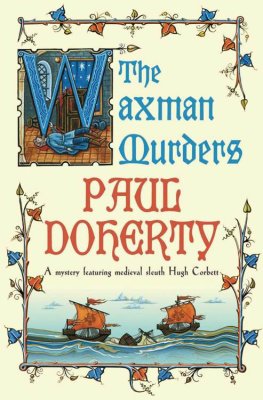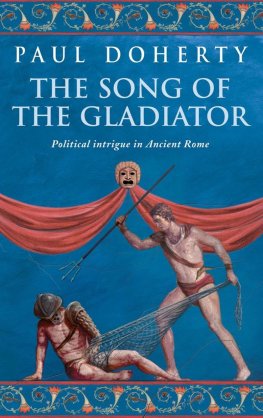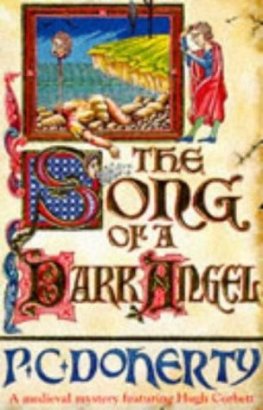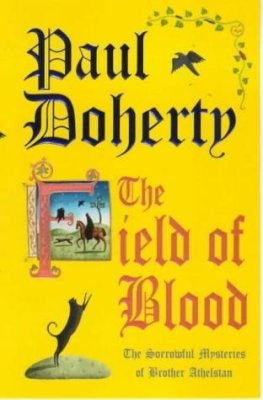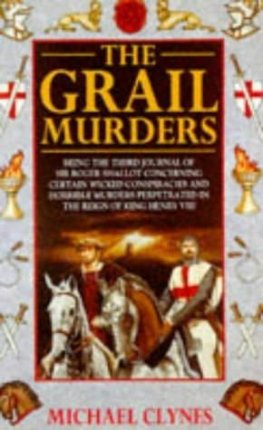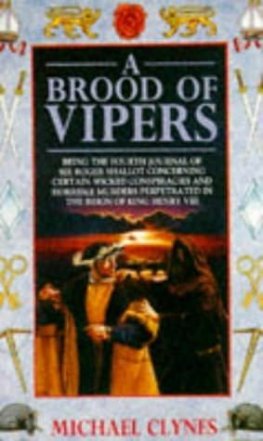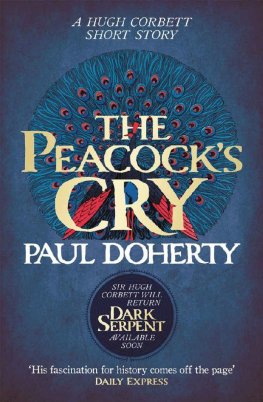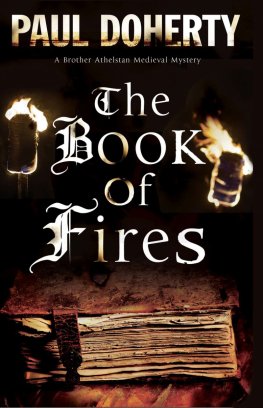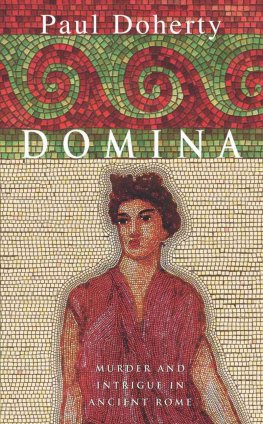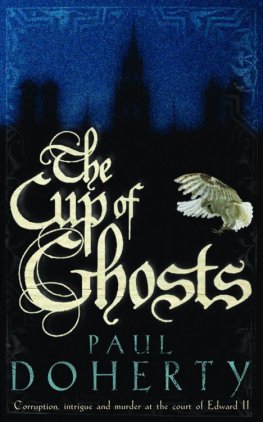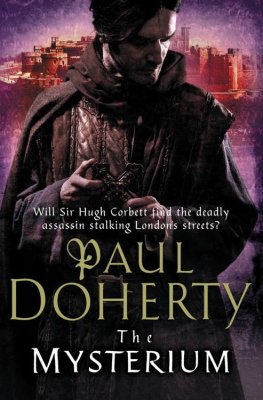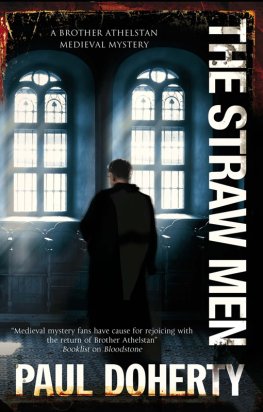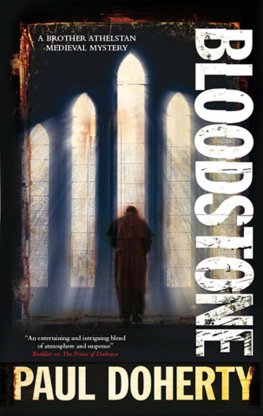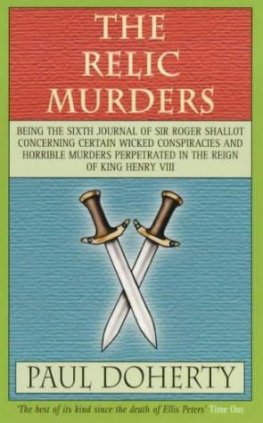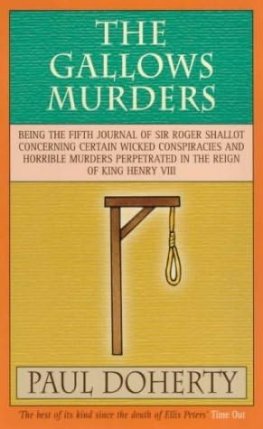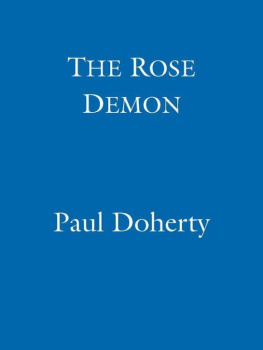Paul Doherty - The Waxman Murders
Here you can read online Paul Doherty - The Waxman Murders full text of the book (entire story) in english for free. Download pdf and epub, get meaning, cover and reviews about this ebook. year: 0101, genre: Detective and thriller. Description of the work, (preface) as well as reviews are available. Best literature library LitArk.com created for fans of good reading and offers a wide selection of genres:
Romance novel
Science fiction
Adventure
Detective
Science
History
Home and family
Prose
Art
Politics
Computer
Non-fiction
Religion
Business
Children
Humor
Choose a favorite category and find really read worthwhile books. Enjoy immersion in the world of imagination, feel the emotions of the characters or learn something new for yourself, make an fascinating discovery.
- Book:The Waxman Murders
- Author:
- Genre:
- Year:0101
- Rating:3 / 5
- Favourites:Add to favourites
- Your mark:
- 60
- 1
- 2
- 3
- 4
- 5
The Waxman Murders: summary, description and annotation
We offer to read an annotation, description, summary or preface (depends on what the author of the book "The Waxman Murders" wrote himself). If you haven't found the necessary information about the book — write in the comments, we will try to find it.
The Waxman Murders — read online for free the complete book (whole text) full work
Below is the text of the book, divided by pages. System saving the place of the last page read, allows you to conveniently read the book "The Waxman Murders" online for free, without having to search again every time where you left off. Put a bookmark, and you can go to the page where you finished reading at any time.
Font size:
Interval:
Bookmark:
Paul Doherty
The Waxman Murders
Prologue
Timeo est summersus in undis.
I fear the dark waves break above him.
Medieval lamentThe Feast of the Translation of St Edward the Confessor, 12 October 1300
From the horrors of the sea and its devouring monsters, Domine libera nos Lord deliver us was a common prayer of those who used the sea lanes from the tip of Cornwall through the Narrow Seas and up to where the waves crashed like demons against the fang-tooth rocks off Farnborough Head. However, no sea monster was more feared than the great soaring, fat-bellied three-masted war cog The Waxman, with its jutting prow and high stern castle, fighting platforms and other instruments of war. The terrors of a night squall, the fury of devil-ridden winds, the horrors of the blackest storm and the monstrous soaring waves paled against the speed, savagery and ruthlessness of The Waxman, under its master Adam Blackstock, late citizen and burgess of the Kings city of Canterbury.
The Waxman was well named; she would suddenly appear, then melt away, as if shrouded in some malevolent protective mist, only to reappear off the Humber, the mouth of the Thames, or prowling off Pevensey or one of the Cinque Ports. Her crew were regarded as fiends incarnate and their evil-looking cog a ship of the damned. Only recently The Waxman had taken a wine ship off Bordeaux, seized its precious cargo and valuables, then sunk the craft after hanging its captain and drowning the survivors of his crew. She had even attacked the warlike galleys of powerful Venice and, more importantly, the round-bellied cogs of the German merchants, the mighty Hanseatic league who had their own dock and quayside at the Steelyard in London.
A year ago, around Lammas Day, Blackstock had won his greatest prize, a Hanseatic carrack, The Maid of Lubeck, with its cargo of furs and pelts. Even more precious had been that casket, carved out of whalebone, containing the Cloister Map being dispatched to Sir Walter Castledene, knight of Canterbury, providing precise details of a fabulous treasure trove between the Suffolk walks and the River Denham. The map had been drawn in cipher, but Blackstock was now preparing to take The Waxman up the River Orwell, past the Colvasse peninsula, to shelter in a tree-shrouded nook, near a ruined hermitage and its derelict chapel, St Simon of the Rocks. Here he could go ashore and meet his half-brother, Hubert Fitzurse, an educated man trained in the cloister school of St Augustines in Canterbury. Hubert had even gone to the halls of Cambridge before entering the Benedictine order, but that was all in the past, shadows of things which could have been. Now, on the Feast of the Translation of St Edward the Confessor, The Waxman was beating her way up the Essex coast towards Orwell for Blackstocks meeting with his half-brother which might change both their lives.
On that freezing October morning, with the clouds pressing down like an iron-grey pall, Adam Blackstock stood staring out across the mist-strewn sea. He was dressed in leather leggings pushed into fur-lined boots, a thick woollen cloak over his shirt and jerkin, the cowl of which was pulled up to protect his head and face against the icy, salted wind biting at his skin. Blackstock seemed unaware of the harsh weather, the straining, swaying ship, the swollen grey seas, the shriek of the gulls or that dreadful mist which seemed to cloak everything. He had ordered all lanterns to be lit and he felt safe enough; few craft would take to the seas in this weather, whilst The Waxman was well armed. Blackstock was busy dreaming about the past, speculating on the future and wondering how it would all end. If the Cloister Map was genuine, and Blackstock believed it was, then he and Hubert would become great and mighty men, perhaps even buy pardons from the King what a change!
Blackstock clung to the ropes of the rigging, letting his body sway with the surge of the sea tossing his ship backwards and forwards. He was used to that and betrayed no fear. Some people claimed he had a hangmans face, dark and sombre, furrowed, with dead eyes and a sharp nose over bloodless lips. Others said the face reminded them of a monk, an ascetic, a man dedicated to the service of God and the love of his brethren. In truth Blackstock cared for no one apart from his beloved half-brother.
As he stood at the rigging, Blackstock reflected like some monk in his stall on how it all had begun. His father had married twice. Huberts mother, a Fitzurse, had died in childbirth so Blackstocks father had married a local girl, a wench from one of the outlying farms. Hubert was six years Adams senior, yet theyd spent their childhood, as their father often remarked, as if they were twins, peas from the same pod. From an early age Hubert had proved himself able with the horn book, a clever scholar, so he was sent to St Augustines Abbey to be taught by the Black Monks. When he returned home, however, he and Adam had enjoyed a veritable paradise of a childhood. Happy days fishing and boating along the River Stour, helping their father on the farm, journeys into Canterbury visiting Beckets great shrine and attending the busy city fairs and markets. In 1272 their paradise had descended into nightmare. In that year old King Henry III had died, mumbling and feverish, at Westminster. His eldest son and heir, Edward, was on crusade in Outremer. In the absence of a strong ruler, the kings peace had been violated in many cities and shires by marauding gangs of rifflers and robbers who attacked isolated manor houses to ransack and loot. The Blackstocks manor near Maison Dieu was one of these.
On that fateful evening Blackstocks father had come running up the stairs, forcing Adam out of an upper casement, virtually throwing him out on to the hay-filled cart below, shouting at him to flee and shelter in the nearby woods. A time of nightmare! Blackstock had hidden beneath a bush, watching his father being cut down, his mother and her maid raped before they too were killed, throats slit, bellies opened. Of John Brocare, his fathers kinsman, there was no sign. At the time Adam believed Brocare had also been murdered, his corpse consumed by the conflagration. The following morning, the sheriffs men arrived to view the devastation and found Adam. Hubert had been in Canterbury at the time, sleeping with the other boys in the scholars dormitory at St Augustines. The brothers were taken to the Guildhall, where some grey-bearded, sombre-eyed man had told them the full extent of the tragedy. Theyd sat in that dusty room and realised how their lives were to be drastically changed. Sombre-eyes, perched behind the table, stared at them sadly as he described how their home had been destroyed, their father and mother murdered, the corpses of other victims burnt beyond recognition. He explained how their parents would be buried in Gods acre at St Mildreds, beneath the old yew tree where theyd first met at the giving of church-ales. He tried to soften the blow, but Blackstock, sitting beside Hubert and holding his hand, just stared at the mullioned window behind the old mans head, watching the sun-motes dancing in the light piercing the thick glass. Afterwards, it was like a dream. The merchant had taken both boys downstairs, introducing them to other men who explained how their father had been not only a successful yeoman farmer but a member of the powerful Guild of Furriers and Skinners in the city, which meant that they had a solemn duty of care towards both Hubert and his younger brother. Hubert seemed to understand and later explained it all to Adam, adding in halting sentences what was to happen in the future.
The next morning theyd attended their parents requiem mass in St Mildreds and watched both coffins, specially purchased by the Guild, being taken out to Gods acre to be buried. Wooden crosses were immediately thrust into the freshly dug mounds of earth. The Guildsmen solemnly promised that, within a year and a day, these would be replaced by marble crosses cut by the finest stonemasons. Adam didnt care. All he could remember were his mothers screams, the flames shooting up through the roof of the house and his father lying on the cobbles, legs kicking, clutching his stomach. He tried to explain all this to Hubert but his brother didnt seem to understand; he would just stare, shake his head and press his fingers against Adams lips as a sign to keep silent.
Font size:
Interval:
Bookmark:
Similar books «The Waxman Murders»
Look at similar books to The Waxman Murders. We have selected literature similar in name and meaning in the hope of providing readers with more options to find new, interesting, not yet read works.
Discussion, reviews of the book The Waxman Murders and just readers' own opinions. Leave your comments, write what you think about the work, its meaning or the main characters. Specify what exactly you liked and what you didn't like, and why you think so.

